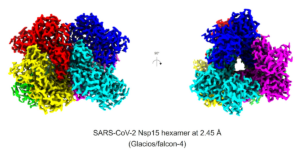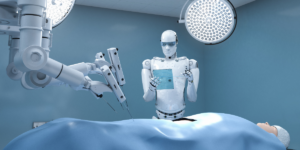
Ewa Deelman and Ann Chervenak will be part of a new $9 million research effort headquartered at the Keck School of Medicine at USC
The two-year Grand Opportunity grant, funded through the National Institutes of Mental Health, will allow researchers to use DNA sequencing and profiling technologies to create an atlas of when and where thousands of genes are expressed during key periods of development. The findings will be freely accessible to scientists worldwide and provide a foundation for discovering the origins of mental disorders.
The NIH description of the project is headlined “Atlas Will Reveal When and Where Genes Turn On in the Brain.” It notes “When and where in the brain a gene turns on holds clues to its possible role in disease. For example, a recent study found that forms of a gene associated with schizophrenia are over-expressed in the fetal brain, adding to evidence implicating this critical developmental period.

Deelman and Chervenak will support the effort of processing and managing high-throughput RNA sequencing data.
ISI Project Leader Deelman (left) will employ the Pegasus Workflow Management System and associated technologies to support the data analysis and data management within the project. Workflows will automatically process data coming off the next generation sequencing machines and derive the gene expression levels of various regions of the developmental human brain
Workflow tasks will include domain computations, such as sequence alignment algorithms, as well as simple data format translations. The Pegasus system has already been adopted by the researchers at the USC Epigenome Center. Ben Berman and Peter Laird at the Epigenome Center are the key collaborators, leading the integration the Pegasus system into their core genomics workflows. Pegasus is used today to processes RNA-Seq, ChiP-Seq, DNA re- sequencing and DNA methylation/histone modification data.
ISI Project Leader Chervenak will design the data management and data upload capabilities for the project, making USC findings available to the Allen Brain Institute, which will then broadly disseminate them. Chervenak will leverage her participation within the BIRN project to ensure that the data disseminated by the project is compatible with BIRN.
James A. Knowles, professor of psychiatry at the Keck School of Medicine of USC, and Pat Levitt, director of the Zilkha Neurogenetic Institute at the Keck School of Medicine, will lead the project in collaboration with researchers at Yale University and the Allen Institute for Brain Science in Seattle, Wash “This project will allow us to document which individual genes and sets of genes are turned on and off in different brain regions through the whole developmental time period,” said Knowles, the principal investigator on the project. “This information is essential for understanding normal and abnormal brain development.”
Published on November 2nd, 2009
Last updated on August 5th, 2021













